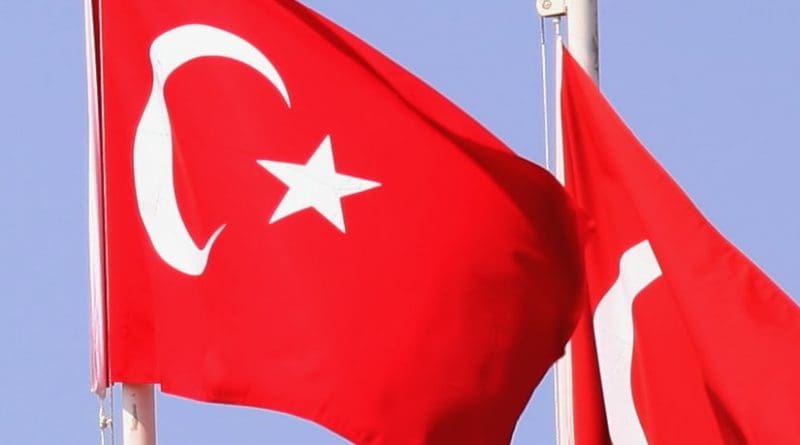Turkey: ’60-Day Non-Stop Operation’ Rule For New Fossil Firing Conventional Thermal Power Plants
“I’m not rich enough to buy cheap things.” — an old English saying.
Conventional thermal power plants (CTPPs) are designed to operate for 30 years. However, in practice, CTPPs are not usually in operation much more than 20 years. Moreover, those that operate beyond the 10-year mark without having undergone a major overhaul are quite rare.
Today, with inexpensive designs and poor materials applications, those plants which are supplied and installed by FarEast Asian contractors barely pass the 2-3 year trial period without experiencing a major shutdown.
These new power plants are designed with low-quality specs and practices. They have an insufficient number of spare parts, their computer programs for combustion instrumentation and control are inadequate, their blowers and fans do not work properly, and their coal mills and electrostatic dust precipitator electrodes quickly erode. The electrostatic dust precipitators that come with these plants are designed so small that they do not meet the necessary international minimum stack emission criteria, and their flue gas desulphurization systems do not work properly.
Everything is indexed to the plant design to keep the overall price very cheap. Such products, designs, and ultimately, thermal power plants are seen neither in Western Europe nor North America. This begs the question: Why do we deserve such plants that operate so poorly? Why don’t our regulatory authorities avoid and interfere when it comes to such poor applications? Why don’t local companies design, manufacture, and construct new power plants? What is stopping us?
Over the past few decades, the Turkish Electricity Authority has continued implementing its famous “60-day non-stop operation” rule, therewith requiring that a new thermal power plant must operate non-stop for 60 days before being granted a temporary approval certificate. By doing so, power plant contractors and sellers are to prove the quality and reliability of their new plant before having their product permitted to enter into the two-year trial period. The Turkish Electricity Authority is unbundled into 4-different companies, therefore, in the end, the electricity generation company EÜAŞ still enforces this requirement in their purchasing specifications although it has no budget for new power plant investments. Now, let us review in detail how this “60-day non-stop operation” period is implemented.
- The new thermal power plant is first expected to operate 72-hours non-stop at 100% full capacity
- Within the remaining 60-day period, the plant is expected to operate at a minimum 75% capacity
- Throughout the 60-day period, the plant should not stop (trip) more than 5 times during continuous operation, and any would-be interruptions should not exceed 24 hours
- If the thermal power plant cannot meet those two conditions within the 60-day run, then the contractor is to make the necessary improvements to the plant and begin the process again.
- The plant will commence the two-year trail period after successful completion of the 60-day non-stop performance test
During the minimum two-year trial period, prior to final acceptance of the power plant, the plant should work at least 5,000 hours at a maximum continuous load capacity without major interruption and 3,000 hours of operation at 50% load must be satisfied.
The steam boilers and turbine generators of public thermal power plants are tested in accordance with the German DIN-1942 and DIN-1943 standards respectively. These conditions have later been updated and modified according to new US-based EPRI rules. In Turkey’s domestic “Electrical Installations Acceptance Regulation”, as released in our Official Gazette, No. 22280, in 1995, there are many tests, rules, and regulations listed that must be completed and adhered to before a thermal power plant is ultimately accepted. However, the “60-day non-stop operation” requirement is no longer included in this list.
Today, new power plant investments are realized by private investor companies in Turkey. They are buying the cheapest plants and equipment available on the international market, which are usually supplied by East Asian contractors. Ultimately, suppliers need to present their supplier credit financing for the projects that they are selling on the international market and seeing that financing is the key factor of the contract, the local investor company accepts whatever is delivered. Moreover, considering that electricity generated during the initial test runs are delivered to the national grid free-of-charge, private investors prefer to shorten this period to 10-30 days, as opposed to 60 days.
These de-facto purchasing procedures are unsatisfactory in the long run. After barely working for 2-3 years, the new plant plants become problematic. They cannot be operated further without undergoing major overhauls that are both expensive and time consuming. Their equipment and instrumentations need to be renewed requiring new spare parts to be ordered and purchased, whether coal mill grinders, e/p electrodes, fans, blowers, feed water pumps, the list goes on and on.
The old English adage, “I’m not rich enough to buy cheap things” can be found in some form or another in all languages. One should hire independent reliable auditing firms to monitor and record the plant acceptance procedure, and the “60-day non-stop operation” process should be required prior to new thermal, nuclear, or any other type of power plant being granted access to the two-year trial period.
All in all, the plant design with appropriate domestic coal firing capabilities cannot be left to the mercy of foreign companies/ contractors that can leave the country immediately after delivery and temporary acceptance. As a countermeasure to those probable unpleasant experiences, domestic companies should always lead the power plant contracts with local project financing services.

